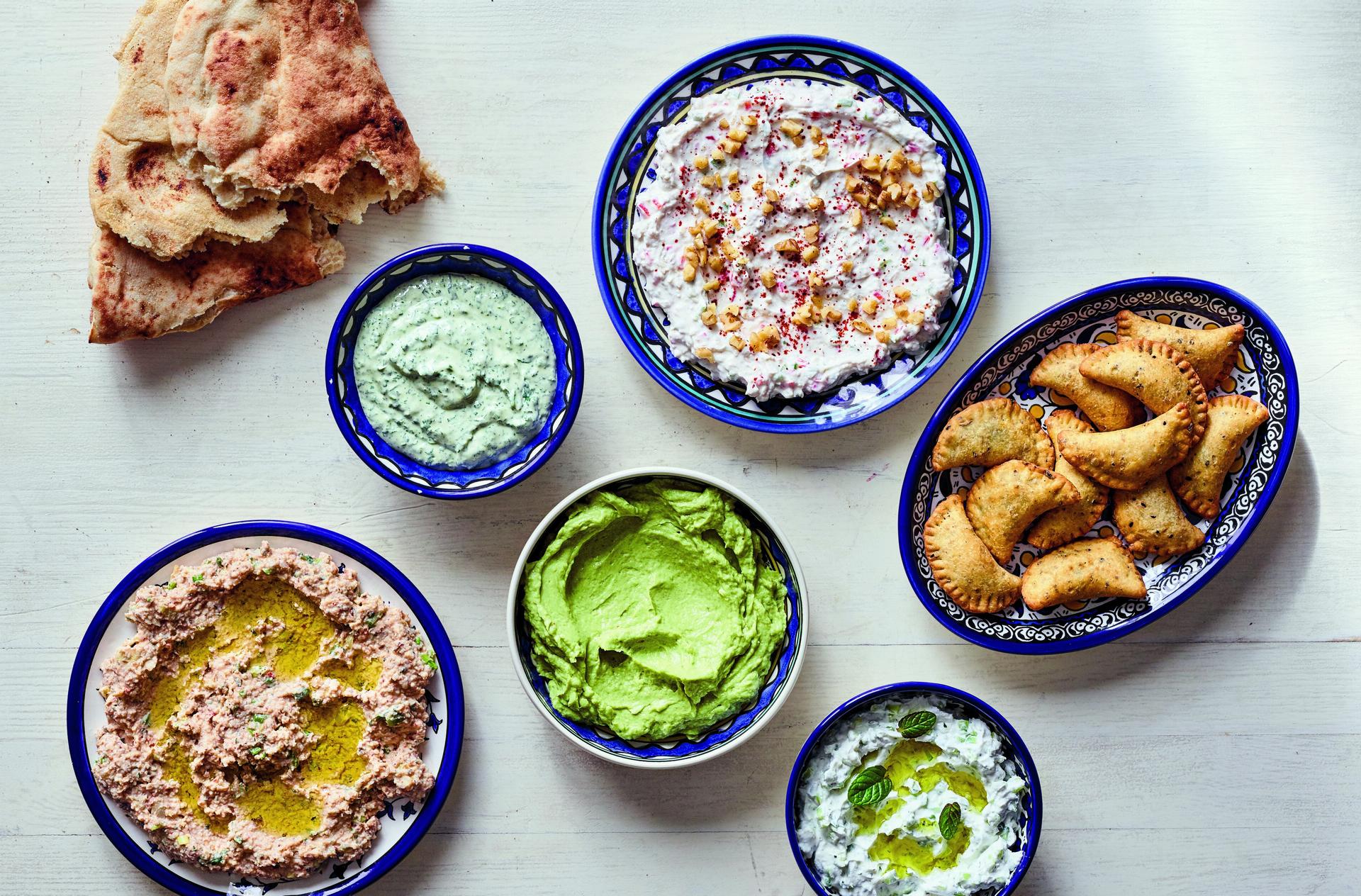Dips and Small Bites from The Palestinian Table: (clockwise from left) Taboon Bread; Parsley or Cilantro (Coriander) Tahini Spread; Walnut and Garlic Labaneh; Deep-Fried Cheese and Za’atar Parcels; Garlic and Cucumber Labaneh; Avocado, Labaneh, and Preserved Lemon Spread; Labaneh and Bulgur Spread.
As a young adult, Reem Kassis left her Palestinian family behind in Jerusalem. She pursued her education and her dreams in business overseas, including in the US.
But the smell of home cooking knows no boundaries. And now Reem Kassis has written a book, "The Palestinian Table," that's as much a memoir as a collection of recipes.
"These are recipes that have been in my family for generations," Kassis says. "When I first left Jerusalem at 17 to study in the US, I think the last place I wanted to end up was the kitchen.
“But soon after I had my daughters, a part of me felt in a way nostalgic — in a way, panicked."
Expanding feasts
Kassis’ kids were not growing up the way she did. "We had a huge family where food was such an integral part of our lives. In the fall we would go and pick olives from our groves and it was very nice. And I think it's one of the reasons that I feel so close to my family and so attached to my culture. And I wanted my daughters to have that same sense of connection to their roots, even though they were abroad."
Kassis says Palestinians tend to eat together. "You know, the families are big," she says. "You often find siblings and children and relatives living within close proximity to each other. Dinner is rarely a family of two — it becomes a family of 20, and when you cook, any uninvited guest is welcome. In my father's village, we would be sitting at my aunt's house. … Someone would knock on the door; they would come in and my aunt would start setting out crackers and coffee and cookies. And five minutes later someone else comes [in]. And half an hour later someone else is there — and by the end of the evening you have an entire feast on the table with pastries and dips."
Couscous, not conflict
Kassis mentions olives, olive oil, and figs as central ingredients in Palestinian cuisine. "Now, there are staple ingredients like maftoul, which many people may not have heard of. It's grains of bulgur that are rolled in wheat flour, and that turns them into these caviar-size little pearls, similar to couscous but larger. So that's typically Palestinian."
And there's one thing that Reem Kassis is sure about: her cookbook is not about political conflict. "As a Palestinian, people often expect that to feature in everything that you do," she says. "I don't want to sit here and say this is or this is not Palestinian. I don't want this to be a political manifesto.
“This is our food, this is our culture. And let that speak for itself."
